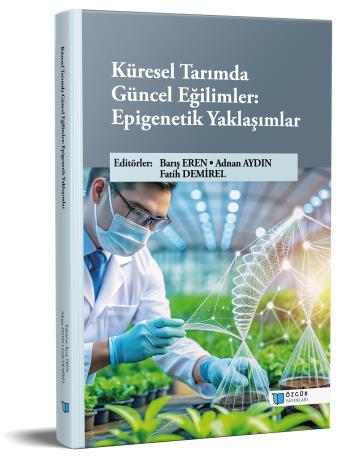
Epigenetic Regulation in Plants and Abiotic Stress Adaptation
Chapter from the book:
Eren,
B.
&
Aydın,
A.
&
Demirel,
F.
(eds.)
2025.
Current Trends in Global Agriculture: Epigenetic Approaches.
Synopsis
Plants, being sessile organisms, cannot escape adverse environmental conditions and therefore have evolved complex regulatory systems to cope with changing environmental stresses. Abiotic stress factors such as drought, salinity, and extreme temperatures are major environmental constraints that limit plant growth and productivity. Recent studies have revealed that plant responses to these stresses are not solely controlled by genetic mechanisms but are also dynamically regulated by epigenetic processes. Epigenetic regulation enables the control of gene expression without altering the DNA sequence, thereby enhancing plant stress tolerance. This chapter provides a comprehensive overview of the main epigenetic mechanisms involved in stress adaptation, including DNA methylation, histone modifications, chromatin remodeling, and small RNA-mediated gene regulation. The role of the RdDM pathway in regulating CHH methylation, the involvement of active chromatin marks such as H3K4me3 and H3K9ac in stress-induced gene expression, and the function of newly identified epigenetic marks such as N6-methyladenine (6mA) are discussed. Additionally, the concept of epigenetic stress memory is examined, elucidating the molecular basis of enhanced responses to recurrent stress. The potential of epigenetic mechanisms for agricultural biotechnology and the development of stress-tolerant crop varieties is also highlighted.

